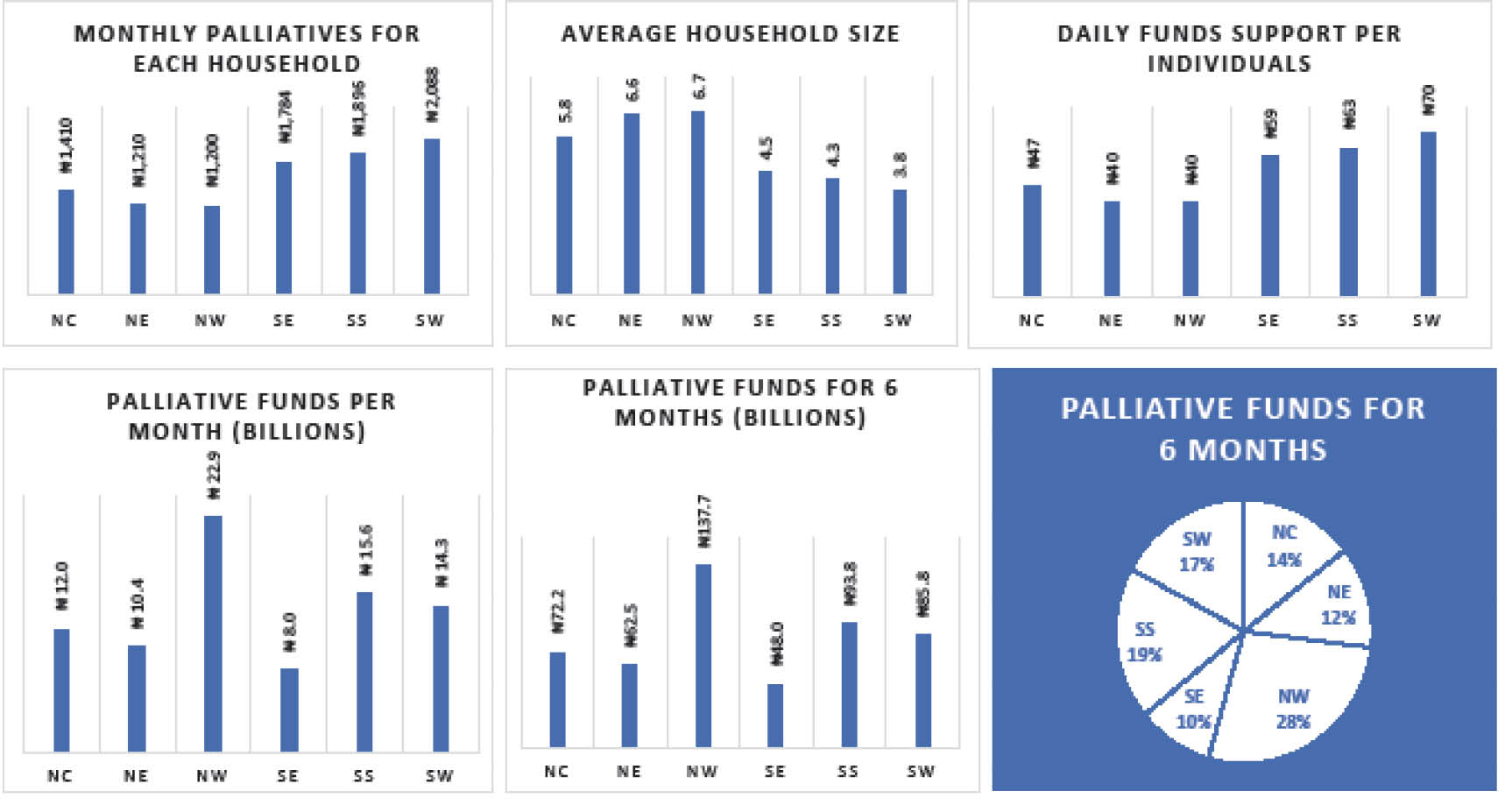The federal government has decided to disburse palliative support to 12 million households following the removal of fuel subsidy.
As it prepares to begin the implementation, the significance of getting it right becomes paramount, for once the funds are distributed, it becomes a formidable task to challenge or persuade the government to reconsider its approach.
What was approved
The National Assembly approved N819.5 billion for the 2023 Supplementary Budget with significant allocations for different sectors. The budget set aside N500 billion as the provision for fuel subsidy removal to Nigerians, the Ministry of Works and Housing is allocated N185.2 billion, the Ministry of Agriculture will receive N19.2 billion, the National Judicial Council is allocated N35 billion, FCTA projects will receive N10 billion, and the New National Assembly members, about 469 of them, will share N70 billion. The lack of consideration for civil servants raises concerns about fairness.
- Jealous house wife pours hot water on husband’s ‘concubine’ in Ondo
- Time for North Central to assert political, economic relevance — Gov Sule
Fairness in Distribution
Achieving balanced economic development necessitates prioritising fair distribution, as it lays the foundation for an equitable and prosperous economic landscape. To address existing disparities, it becomes crucial to establish an accurate sharing formula that ensures fairness when allocating funds to each state. By implementing such a transparent and equitable process, the government can demonstrate its commitment to good governance and promote a system that benefits all stakeholders. This approach will help foster trust, promote inclusivity, and contribute to a more balanced development.
Beneficiaries and the cost of rushing to approve the budget
Given the government’s announcement that it will target poor households, the NBS’s multidimensional poverty index (MPI) data is used as a guidepost for the targeted households. The government plans to distribute N8,000 to 12 million poor households over six months as palliative support. This will benefit an estimated 64.88 million individuals out of 132.93 million poor people. This means 68.05 million people will still need an explanation as to why they were neglected.
Also, given that the National Assembly only approved N500 billion, assuming administrative costs are not inclusive, the government can only select 10.42 million to receive the palliative fund, where 5.68 million poor households will be selected from the North and 4.74 million from the South. The targeted total will reduce to 56.32 million poor people. The reduction leaves out nine million more individuals without assistance. The oversight by the National Assembly in reviewing the budget raises questions about their attention to detail, which is a crucial aspect of governance.
Who gets what?
In the estimation, the poor individuals are grouped into households by dividing them by the average household size data. This gives the total number of poor households to around 24.67 million, 13.3 million in the North and 11.3 million in the South. From this figure, the government will select the 12 million households to receive N8,000 over six months.
In an initial thought, an N8,000 monthly support will amount to N267 per day. However, if household size is considered, the story will differ.
With an average household size of 6.7 in the North West, a household that receives N8,000 per month will be shared between 6.7 people, which amounts to N1,200 per person and N40 per day, similar to the North East. Those living in the North Central with an average household size of 5.8 persons per household will get N1,410 per person and N47 daily.
The figure differs in the South. In the South West, the N8,000 per month will be shared between 3.8 people, which makes them get about N2,088 per person and about N70 per day. Similarly, in the South East, the palliative will be shared between 4.5 people, which makes them get about N1,770 per person and about N59 per day.
Across the states, the top five states that are expected to receive the highest monthly palliative funds are Kano, Kaduna, Lagos, Akwa Ibom and Katsina due to their high numbers of poor households. They will receive N5 billion, N4.4 billion, N4.1 billion, N3.9 billion, and N3.4 billion, respectively. FCT, Abia, Edo, Ondo, and Borno are the five states receiving the lowest palliative funds. Due to their low number of poor households, they will receive N888 million, N912 million, N1.05 billion, N1.13 billion, and N1.5 billion, respectively.
During the six months programme, Kano, Kaduna, Lagos, Adamawa, Zamfara, Nasarawa, Abia, and Adamawa should receive around N30.3 billion, N26 billion, N24.4, N12.9 billion, N10.2, N5.5 and N4.2 billion, respectively.
The geopolitical zone with the highest allocation in a month and over the six months will be North West with N22.9 billion and N137.7 billion, respectively. South-South and South-West follow them with N15.6 and N14.3 monthly allocation and 93.8 billion and 85.8 billion over six months, respectively. The South-East will get the lowest funds due to its low number of poor households.
The Big Challenge — Disbursement
The cake-eating problem arises in fair distribution when determining how the funds will effectively reach the intended groups. The multiple indicator cluster survey data reveals a concerning trend: the number of individuals without bank accounts surpasses the number of poor households in the country. This presents a challenge in ensuring equitable access to financial resources.
Therefore, the fuel subsidy removal palliative programme raises concerns about impacting the number of benefiting households. Data reveals a hurdle in fair fund distribution because individuals without bank accounts outnumber poor households.
Effective strategies are needed for financial inclusion and equitable distribution. These challenges emphasise the importance of meticulous budget scrutiny, attention to detail, and innovative approaches to achieve equitable distribution and inclusive governance.
Dr Aminu is a senior lecturer at Metropolitan University, Cardiff, UK

 Join Daily Trust WhatsApp Community For Quick Access To News and Happenings Around You.
Join Daily Trust WhatsApp Community For Quick Access To News and Happenings Around You.

